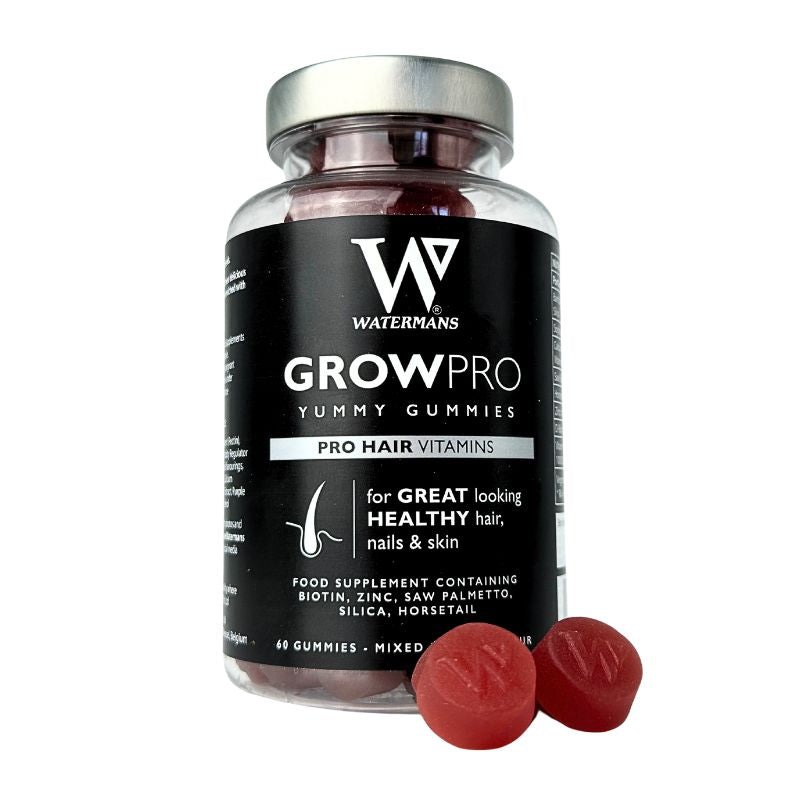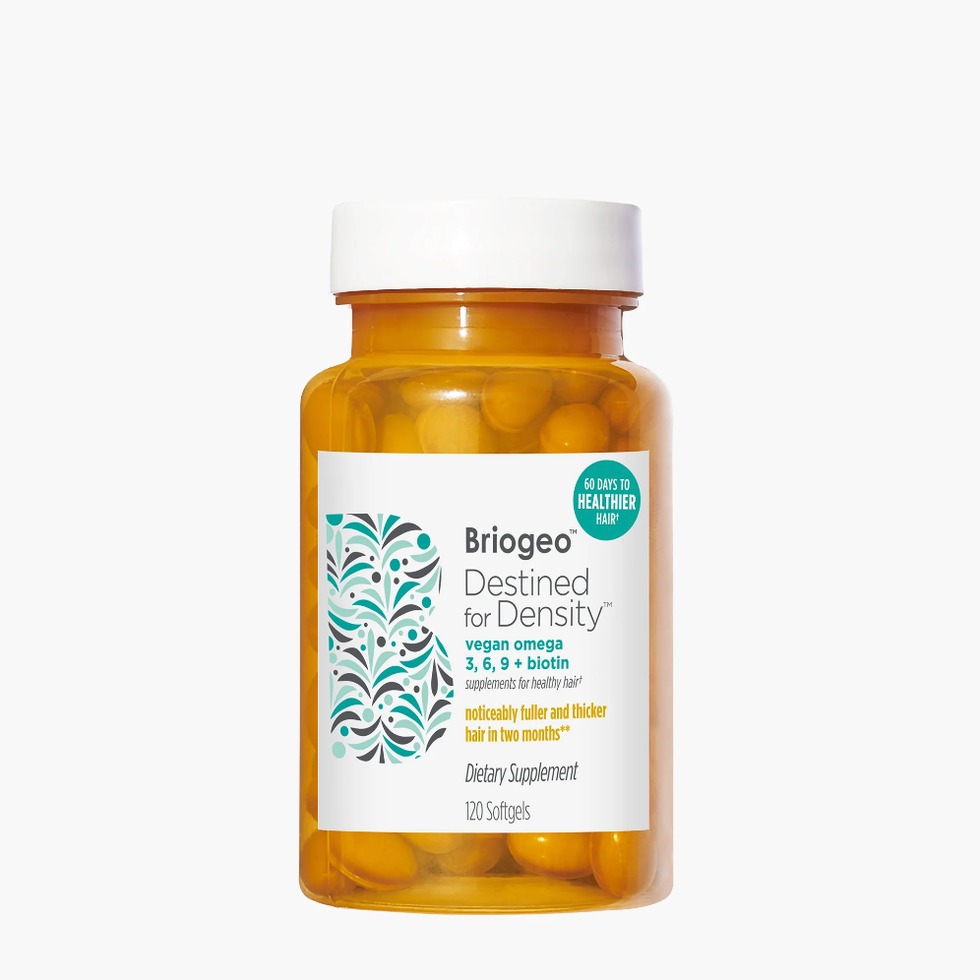
Essential Vitamins for Hair Health
Healthy hair growth relies on multiple nutrients. Among these, certain vitamins play critical roles.
The Role of Biotin in Hair Growth
Biotin, a B-vitamin, is vital for hair growth. Cells use biotin to produce amino acids, which form proteins. Hair is mainly keratin, a form of protein. Thus, biotin is essential for producing the building blocks of hair. Research suggests that biotin deficiency can lead to hair loss. Hence, adequate biotin intake can support hair growth and minimize hair thinning.
Vitamin A and Hair Development
Vitamin A aids in the growth of cells and tissues, including hair. Moreover, it helps in sebum production, which moisturizes the scalp and keeps hair healthy. However, too much vitamin A might trigger hair loss, so balance is key.
Vitamin E and Scalp Nourishment
Vitamin E acts as an antioxidant. It combats oxidative stress that can weaken hair growth. By protecting the scalp skin from damage, vitamin E supports healthy hair follicles and encourages hair growth.
Vitamin C ? Antioxidant Support for Hair
Vitamin C is another powerful antioxidant. It helps protect against the oxidative stress caused by free radicals. Additionally, it’s crucial for collagen production and iron absorption, both critical for hair strength. A vitamin C-rich diet supports hair health and texture.
Key Minerals for Hair Strength

The health of your hair depends not only on vitamins but also on key minerals. Minerals provide the foundation for strong hair growth and maintenance. Let’s explore the ones most critical for keeping your hair robust and resilient.
Iron ? Oxygen Delivery to Hair Follicles
Iron is a powerhouse mineral essential for transporting oxygen in the bloodstream. A well-oxygenated scalp means your hair follicles receive ample oxygen, which is vital for growth. Low iron levels often lead to anemia, which can cause hair loss and affect its overall health. Including iron-rich foods like spinach, lentils, and red meat in your diet can help ensure your hair follicles are thriving.
Zinc and Hair Tissue Growth and Repair
Zinc plays a pivotal role in hair tissue growth and repair. It also keeps the oil glands around your follicles working properly. Without adequate zinc, you might experience hair loss or slow growth. Foods high in zinc, such as pumpkin seeds, chickpeas, and oysters, should form part of your balanced diet to support robust hair.
Selenium for a Healthy Scalp
Selenium is another essential mineral for a healthy scalp. It helps prevent dandruff and promotes hair growth through its role in the creation of selenoproteins. These are vital for scalp health, along with immunity and metabolism. Just be cautious with intake; too much selenium can have adverse effects. You can find this mineral in foods like brazil nuts, sunflower seeds, and mushrooms.
Protein: The Building Block of Hair

Protein is fundamental for hair growth. Hair is primarily composed of keratin, a form of protein. This means that without enough protein, hair may become weak and brittle. A lack of protein can lead to hair loss. Foods like eggs, fish, and chicken offer rich protein sources. They aid in building strong hair strands. Quinoa and lentils are great for vegetarians seeking protein. Ensuring you consume enough protein is crucial for maintaining luxurious hair.
Omega-3 Fatty Acids and Their Impact on Hair Texture
Omega-3 fatty acids improve hair texture. These nutrients nourish your scalp and hair. Omega-3s come from fish like salmon, mackerel, and sardines. They’re also found in flaxseeds and walnuts. By including these in your diet, your hair can become shinier and more elastic. A well-nourished scalp is the foundation for smooth, vibrant hair. Omega-3s may also reduce scalp inflammation, leading to fewer issues like dandruff. Studies suggest omega-3s can boost hair growth. People with a deficiency might see their hair become dull and lifeless. These fats play a role in hair follicle health. They could prevent hair loss and thinning. In conclusion, for better hair texture, consider upping your omega-3 intake.
The Importance of a Balanced Diet for Hair Grooming
Maintaining a balanced diet is crucial for healthy hair. Your hair needs various nutrients to grow and stay strong. We’ve covered how specific vitamins and minerals like biotin and zinc are key for hair health. However, it’s important to remember that these nutrients work best when they come from a varied diet.
Eating a variety of foods ensures that your hair gets all the vitamins for hair health it needs. A diet rich in fruits, vegetables, proteins, and healthy fats provides a wide range of nutrients. These are all necessary for fostering luxurious hair growth. Good nutrition helps in repairing hair damage and maintaining hair follicle health. This can reduce issues such as hair thinning and breakage.
For instance, leafy greens supply iron and vitamin C, while sweet potatoes and carrots are great for vitamin A. Nuts and seeds give you selenium and zinc, and eggs offer a mix of biotin, protein, and omega-3 fatty acids. A balanced diet not only supports hair health but also benefits your entire body. Paying attention to what you eat can lead to improvements in hair texture and growth over time.
To sum up, for the sake of your hair’s beauty and strength, make diverse and nutritious food choices. This will help you create a strong foundation for your hair to thrive. Keep in mind that a balanced diet is more beneficial for your hair than relying on supplements alone. When your diet lacks certain nutrients, supplements can help, but they should not replace a balanced diet.
Hair Supplements vs. Natural Foods: What You Need to Know

When it comes to hair health, many reach for supplements. Yet, the true powerhouses are natural foods. Supplements can fill gaps, but they can’t beat a diet rich in vitamins for hair. Let’s explore why whole foods often trump pill-based solutions.
The Advantages of Natural Foods
Natural foods provide a complex array of nutrients. These work together for our hair’s benefit. Fruits, veggies, proteins, and fats bring more than just vitamins. They offer fiber, antioxidants, and a balance that pills lack. Your body absorbs these nutrients better from foods than from supplements.
The Limitations of Supplements
Supplements are helpful in specific situations. For example, they aid if your diet has a nutrient shortage. But they can’t replace the richness of natural foods. They often focus on one nutrient, missing out on the synergy of a varied diet. Plus, some vitamins for hair in pill form can build up and cause harm if overdone.
Remember, for luscious locks, start with your plate, not your medicine cabinet. And always seek advice from a healthcare provider before starting any supplement regime.
Addressing Hair Loss: Nutritional Deficiencies and Solutions
When hair starts to thin or fall out, nutritional deficiencies might be the cause. It’s essential to pinpoint which nutrients are lacking. Once identified, you can adjust your diet or consider supplements. Let’s look at common deficiencies that impact hair growth and how to address them.
Common Deficiencies Leading to Hair Loss
Low levels of certain vitamins for hair and minerals can lead to hair loss. Not getting enough biotin, iron, zinc, or protein is often to blame. Vitamin D deficiency is another lesser-known cause of hair loss. Sunlight is the main source of Vitamin D, so lack of exposure might be an issue.
Solutions for Nutritional Deficiencies
To combat hair loss, start with a healthy diet. Include lean meats, leafy greens, nuts, seeds, and beans. If dietary changes aren’t enough, consult a healthcare provider. They may recommend supplements to help. Remember to monitor your nutrient intake regularly to keep hair loss at bay.
Addressing hair loss requires understanding and action. By tackling nutritional deficiencies, you can help restore your hair’s health and appearance. Rely on real food first and supplements as a backup to ensure getting all vitamins for hair.





